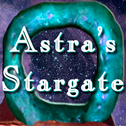
Commercial Telescope Vendors
I present this information with the usual disclaimer. The presence of any entity here does not indicate a personal preference or recommendation by the author of this page. I don't have time or space to list everyone, but, as usual, please feel free to contact Astra.
Before you buy:
Look below for Astra's advice if you are a beginner.
Check out this page at Sky and Telescope Magazine:
Hobby Killers: What telescopes not to buy
THE VENDORS
Celestron InternationalKnowledge Database Search for answers to your astronomical equipment questions
Choosing a Telescope Type
How to Pick a Telescope
Meade Image Gallery
Astronomy Vendors - from the Astroguide
Adorama Telescopes and Binoculars
Bushnell Telescopes - Complete selection of binoculars, telescopes and other optical equipment
Advice from well known astronomy magazines:
Telescopes and Binoculars - - from Sky Online
Buying a Telescope - - Astronomy Magazine
CLASSIFIEDS
Check out these places for used equipment:
Adorama - Used Telescopes & Accessories
Astromart
EBAY of course, auctions equipment, this link goes to the Telescope and Binocular section
Telescope Blue Book
ADVICE
[from Astra to new astronomers - don't take it too seriously]
Most astronomy club members will tell you the same thing when you ask about buying your own 'scope. DON'T DO IT ! We'll tell you to come out for a few star parties before even considering a cash lay out. Look through the instruments of "veteran" observers and ask questions. And, first and foremost: Look at the sky before you start flippin' through Sky and Telescope for your very own machine.
If you just can't wait, try out binoculars. Here is a short page I did a while back that leads to binocular information and links. Typical instruments for beginners include 7 x 35 or 10 x 50 binoculars. Some observers found it took many years to outlive the possibilities with a pair of these binoculars. While you are learning the sky with your binoculars, you can take the time to study the types of telescopes and decide what exactly it is you want to do with your telescope. Whether you want to do planetary work, deep-sky observing or comet hunting is as important a consideration as portability and aperature.
If you still insist on buying your own telescope, you'll be faced with deciding between a reflector or a refractor or a modified type of reflector like a cassegrain or maksutov. Reflectors seem to deliver more "bang for the buck" because large refractors become too cumbersome to be portable after 5 or 6 inches (diameter of main optical surface.) If your main objective is photography, you'll need a telescope with a drive to track the sky with reference to the rotating Earth. I would suggest a clock drive and computer tracking to all observers who felt they could afford it.
Last Modified 05/12/20
